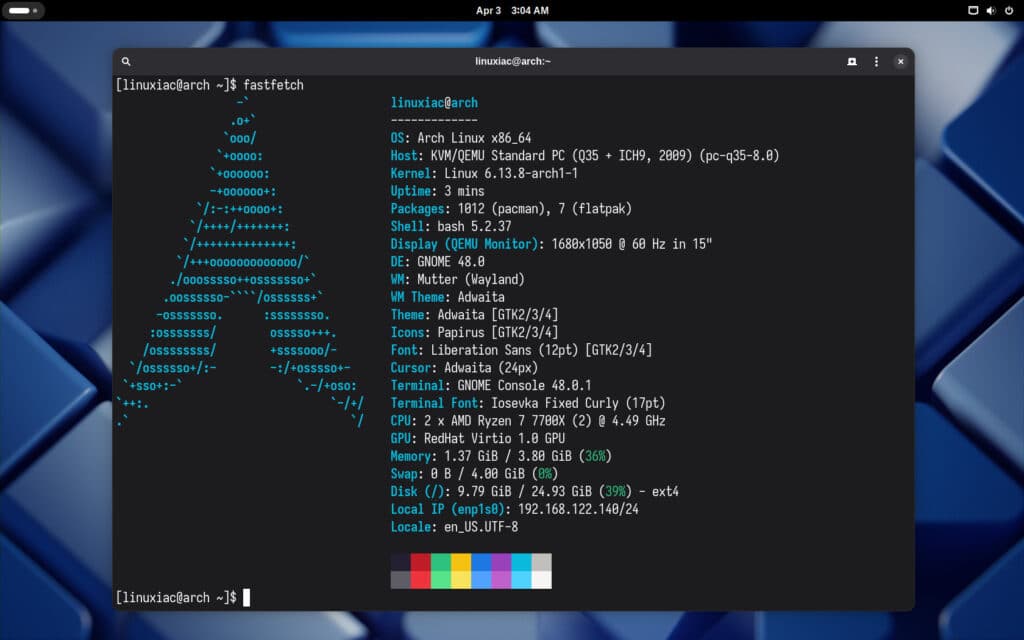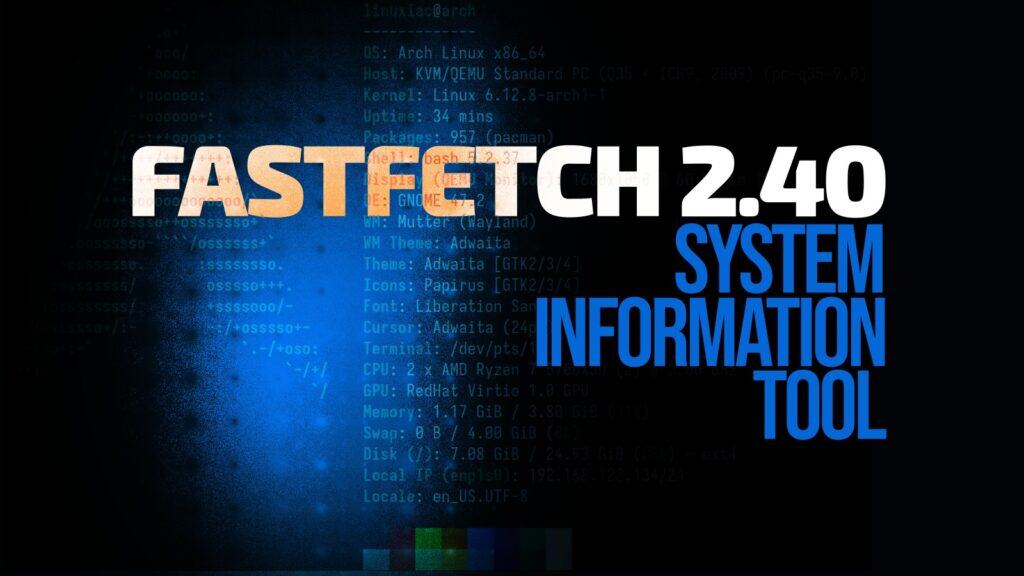Fastfetch, the tool beloved by Linux enthusiasts for showcasing a sleek summary of system information right in the terminal, has just launched its latest update: version 2.40. For the unfamiliar, it is one of the most promising successors to Neofetch, which, as many readers might recall, is no longer maintained.
According to the project’s developers, this latest update brings many improvements, bug fixes, and expanded support for various platforms and devices. In particular, users can look forward to more consistent naming conventions, an enhanced range of GPU detection features on Windows, and smoother integration across multiple operating systems.
The new version introduces a noteworthy change in the LocalIP module’s key-format: the parameter {name} now appears as {ifname}, ensuring consistency throughout the tool. In light of this, Warp Terminal font detection is now supported in Windows, and there is extended GPU information for AMD, Intel, and Nvidia devices.
Additionally, the software broadens its functionality by detecting boot managers on OpenBSD and NetBSD, reporting DNS entries on macOS via SystemConfiguration, and offering better performance and accuracy for Wi-Fi detection on FreeBSD.
Fastfetch 0.40 also pays special attention to user experience on macOS. Not only are new Mac models now supported, but systemd-resolved support for the DNS module on Linux has also been introduced.

Another highlight is that the tool now captures TPM detection on macOS and provides improved IPv6 client address reporting, along with default route detection capabilities.
Moreover, the release refines battery-related functionalities by adding remaining time reporting on NetBSD and rounding uptime seconds to the nearest minute to mirror the typical behavior of the uptime command.
Regarding visual elements, the release updates a few logos. The openSUSE Tumbleweed logo has been fixed, while WiiLinuxNgx is now referred to by a more generic name—Wii-Linux—with aliases that better align with user expectations. Changes also include a fresh identity for Xray-OS (now known as Ada) and a revised Nexa Linux logo.
For more information, see the changelog. The tool is included in the repositories of most Linux distributions. To get started, search for “fastfetch” using your package manager and install it.
